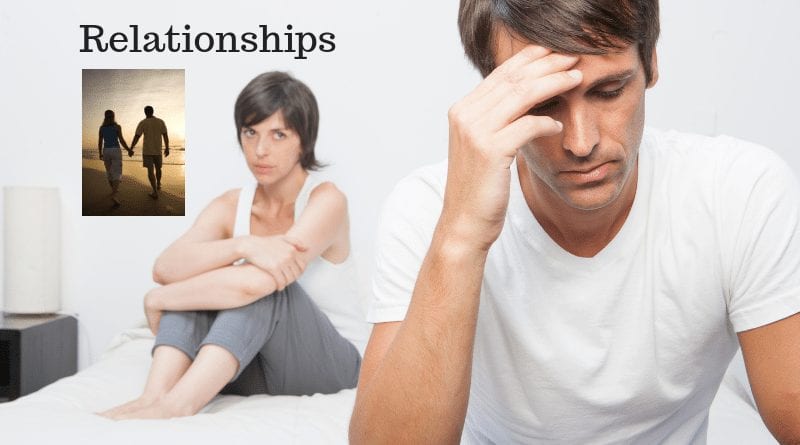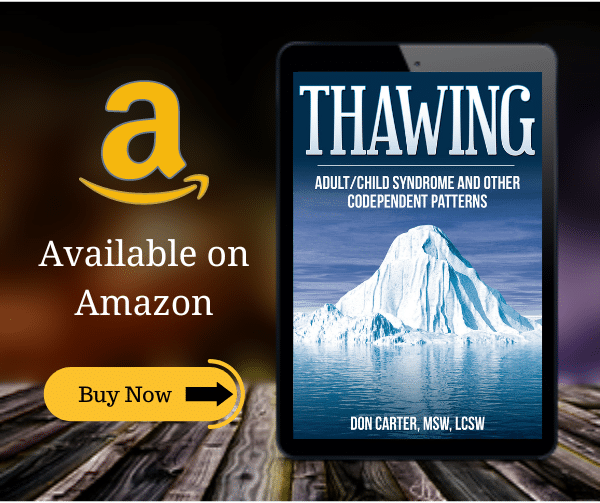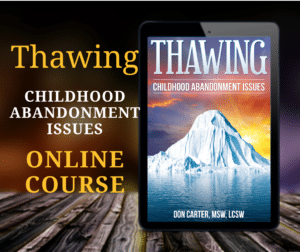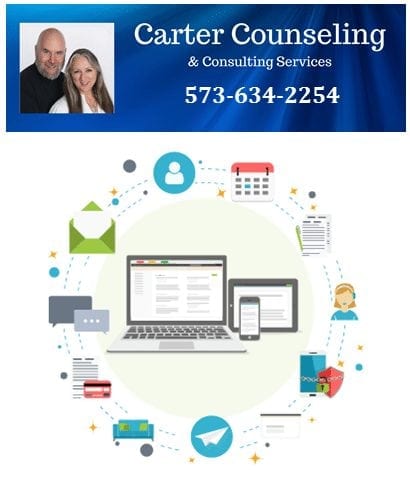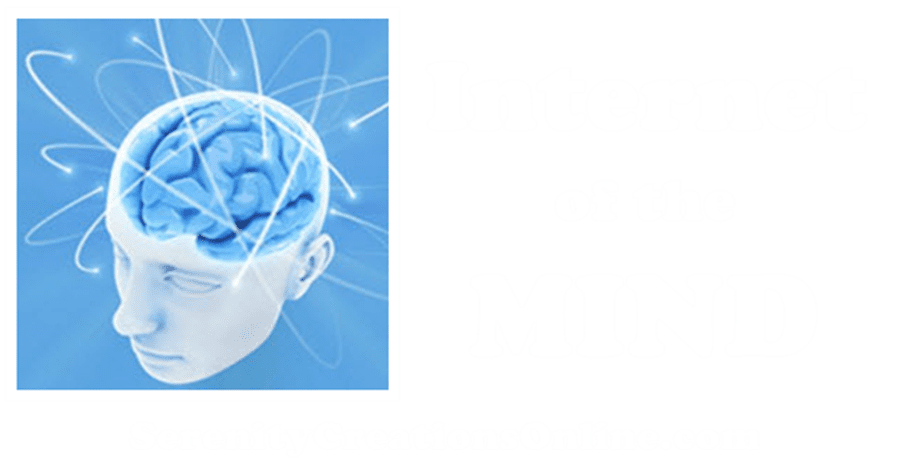
Relationship Help, Tips, & Tools
Sometimes we need relationship help because things don’t always go the way we planned… This is especially true in our relationships. There’s nothing quite as good as the feeling you get when things are going right — and nothing that feels quite as bad as when a relationship fails or is failing.
Here you will find tips, tools and guidance for relationship problems such as codependency, enabling, mind games, relationship addiction, marriage problems, and marriage help. If you’re ready to get started lets jump right in…
Subconscious Synchronization of Compatible Neural Networks

We receive these unconscious signals from others and – if they have a compatible Love Map – they will receive unconscious signals from us. This is how we zoom in on and attach to someone with a compatible map… It’s also how and why we end up re-enacting the same themes and patterns in our relationships.
For example, If we have a map for codependency then we will send out unconscious signals into the world around us which will only be “picked-up” by those who need someone to fix them, rescue them, punish them, forgive them and so forth… someone who knows how to “dance our dance” such as an alcoholic, gambling addict, etc.
Due to the “settings” or filters of our codependent maps we also pick-up on the unconscious signals being sent by someone who needs to be fixed, rescued, punished, forgiven and so forth. This is how Distancers find Pursuers, Rescuers find Victims, Victims find Persecutors, Alcoholics find Codependents, Internalizers find Externalizers, and those who are capable of healthy intimacy find people who are capable of healthy intimacy.
Relationship Help – Polarization
We have all heard the saying that opposites attract… Here’s why – People who disown certain neural networks or “parts” of themselves find compatibility in someone else who has an “extra helping” of what they have disowned. For instance, someone who disowns their anger network… or more accurately their ability to “do anger”… maybe subconsciously attracted to a partner who has problems controlling their anger.
Consciously we want something entirely different because we have a happily-ever-after-map. When we want something consciously but seem to end up with something other than that repeatedly it’s a good sign that we have a disowned “part” and an internal conflict between conscious and subconscious networks.
To understand this we need to remember the concepts of separateness and connectedness, the Punishment-Forgiveness Cycle, The Chemistry of Drama, ABCs and the Figure-Eight, and Distance and Pursuit Game.
When a person disowns their “Anger Map” one way they can continue to experience that part of themselves is through a connection with someone who feels and expresses anger intensely. It’s like one person gives their share of anger to their partner who subconsciously accepts it as “borrowed anger” adding it to their own supplies.
So what you have is two people on extremely opposite ends of a line or continuum – polar opposites… they come in for relationship help because one has uncontrollable anger and the other hardly any anger at all. One looks like the problem while the other looks like a saint… but in actuality they are both part of the same problem – disowned and borrowed parts. Relationship help is necessary to help sort these polarities out.
More Examples of Disowned and Borrowed Parts
- Overly Responsible Person & Fun Loving Addict – The overly responsible partner subconsciously and vicariously experiences their disowned “fun-and-spontaneity” part through their partner…the addict subconsciously and vicariously experiences their disowned “responsible” part through their partner.
- Excessively Emotional Person & Emotionally Distant Mate – The excessively emotional partner subconsciously and vicariously experiences their disowned “emotional-regulation” part through their partner…the emotionally distant partner subconsciously and vicariously experiences their disowned “emotional-expression” part through their partner.
- Flammable Person & Calm/Cool/Collected Mate – The partner with a flammable temper subconsciously and vicariously experiences their disowned “composure-maintaining” part through their partner…the Calm/Cool/Collected partner subconsciously and vicariously experiences their disowned “anger-releasing” part through their partner.
- Excessively Nice (Edith Bunker) & Hostile Mate (Archie) – The overly-nice partner subconsciously and vicariously experiences their disowned “hostility” part through their partner…the hostile partner subconsciously and vicariously experiences their disowned “soft-and-compassionate” part through their partner.
- Passive Person & Aggressive Mate – The passive partner subconsciously and vicariously experiences their disowned “empowering” part through their partner…the aggressive partner subconsciously and vicariously experiences their disowned “humility-and-restraint” part through their partner.
- Givers & Takers – The giving partner subconsciously and vicariously experiences their disowned “love-receiving” part through their partner…the Taking partner subconsciously and vicariously experiences their disowned “love-giving” part through their partner.
Relationship Help – Connections

But if you have ever really been connected to someone you know it because you can feel the connection. These connections are invisible yet incredibly strong. We call them attachments or emotional bonds for lack of better terms.
One way to get a good sense for how these connections are made is to imagine how a laptop connects to the Internet in a “Hotspot” or Internet Cafe…usually through a wireless connection. Another example is the cell phone… it connects to the network without cables by sending signal through the air – a “wireless” connection.
We connect to our partner in essentially the same way… our subconscious mind broadcasts signals – called para-messages – out into the world. These signals are received by our partner. The limbic system or “emotional brain” – specifically the amygdala is the point of connection. It is often referred to as a Limbic Connection or Limbic Bond for this reason.
Since Love is an emotion, it follows that the emotional brain would be the location of this wireless connection. So, our cognitive maps for love connect and synchronize in this way. We have projected our “Love Map” onto our partner and they have projected theirs onto us creating a “wireless network” – The two have merged into one.
The couple has now become a “system” – a networking of networks. But in order to be a well-functioning network, without glitches in the system, programming conflicts must be resolved.
Relationship Help – The Couple as a Network of Networks
Once we have resolved conflicts between our internal Love Maps then we have co-created something bigger than each of us – a network outside of US…between US… a unified, co-created, and shared map for how “we do love”. This external “system” or “wireless network” we refer to as our relationship contains all the instructions for how we function as a couple. A well-functioning couple realizes that our Maps for Love are only one set of many maps.
The brain has complexity, we have maps for…
- Love
- Career
- Parenting
- Social Interests
- Politics
- Spirituality
- Hobbies
- Entertainment
- and Other Maps/Neural Networks
It’s convenient if we share similar programming. But I have yet to see the couple who share every map in common. Now, I HAVE seen many happy couples who have learned to appreciate each others differences and needs. Our differences help us maintain our separateness – you still have “your life”, I still have “my life”, and now we also have “our life”.
We must realize that our lives may intersect only at certain points. Some couples need relationship help when they cannot accept their different-ness. We can disagree on some things and agree on others… we can encourage and support each other to pursue his/her own interests, even if that takes them away from us for a time… and we can have dedicated times for nurturing and sustaining our relationship – tending to “system maintenance”.
Relationship Help – Conflict Resolution
Over time we grow and continue to co-create this wireless Love Map becoming closer, more intimate, harmonious and stronger as a couple…or not. Co-creating a well-functioning, harmonious, shared network for love requires that we have an effective method to resolve conflicts between us in way that creates win-win scenarios.
It’s extremely important to know when to reach out for relationship help. Go to Signs of Marriage Problems to see if you may need help. Then visit Repair Tools for Marriages to get an idea for what kind of relationship help you need. If all we ever do is fight until there is a cease-fire, never really resolving anything, then we are unable to fully synchronize and find harmony as a couple. There are too many system glitches… the whole network could crash as result.
If this is true in your case it suggests a need of relationship help focusing on conflict resolution strategies. That’s right – you may have to call in the geek squad…one of us therapists. If one or both partners cannot maintain a separate sense-of-self then we have become enmeshed also suggesting a need of relationship help.
Perhaps our neural networks get so tangled up with each other that love addiction becomes a problem. Or one person loses themselves by becoming engulfed – i.e. they feel “swallowed-up” by the over-powering network of the other. Healthy boundaries help maintain that balance between separateness and connectedness. We learn boundaries in our family of origin. If you can relate to the material you have read so far, be sure to read all four parts of the “Iceberg” before moving forward on this page.
Check out Twenty Signs of Marriage Problems to see if your marriage is in need of relationship help.
Relationship Help – Boundaries
A boundary is that edge where you end and I begin. We need healthy emotional boundaries, physical boundaries, and sexual boundaries. We need relationship help if we cannot maintain or establish healthy boundaries in these areas. When we have healthy boundaries in our relationships, we accept people and actions that are positive and helpful, but protect ourselves from people and actions that are harmful to us.
In trying to protect ourselves, we may have learned to keep very rigid boundaries, trusting no one and allowing no one to get close to us emotionally. Whenever anyone asks something from us our automatic response may be “NO”. On the other hand, in our search for love and acceptance we may leave ourselves too vulnerable… letting people hurt us too easily. In this case, the ability to say “NO” eludes us because if I say no, you might go away and not come back – i.e. fear of abandonment.
Healthy boundaries let us choose whom to trust, how much to trust them, and what actions to accept from them, letting us have positive relationships while protecting us from abuse. Boundaries help us “teach people how to treat us”… When I allow you to abuse me more than once I am just as response-able for it as you are.
Relationship Help – Healthy Responsibility
Responsibility refers to our ability to respond to situations and people in our life – response-ability. This involves specific kinds of responses…
- response-ability for ourselves – I have the response-ability to think, feel, speak, and act on my own behalf. If I allow or accept another to choose my thoughts, feelings, words, or behavior for me I am being under-responsible.
- response-ability to others – I am response-able for how I respond TO others… I am NOT response-able FOR others. Others have the ability-to-respond for themselves.If I take response-ability for the thoughts, feelings, words, and/or actions of another I am being over-responsible. my taking response-ability for them is telling them I don’t think they are able to do it for themselves. Exceptions are made in the case of children of course… However, while infants are totally unable-to-respond for themselves, all children become more and more response-able as they grow. Good parenting calls for knowing when not to do for their children what they are capable of doing for themselves.
Over-responsibility invites under-responsibility and sets up the Drama Triangle, victim-mentality, rescuing, care-taking, fixing, controlling, persecuting, enabling and other codependent maps. Over-responsible, codependent people care too much. When they feel a need in others, they assume responsibility for them which actually ENABLES the other to remain under-responsible.
The under-responsible person wants this kind of care, they define it as “love”. In fact, they accuse, shame and blame if it doesn’t come… Consequently, they need relationship help to experience the feeling of true independence or interdependence – i.e. Healthy Intimacy.

